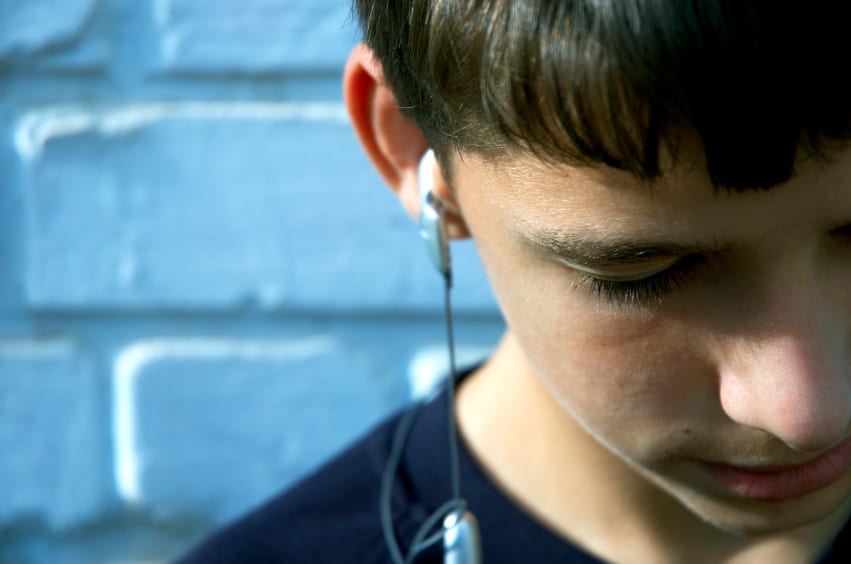Explore web search results related to this domain.

There's no such thing as a perfect parent, says child development expert — and mom of three — Dr. Tovah Klein. Luckily, kids don't need their parents to be perfect.
Fortunately, making mistakes and owning up to them is one way that parents can actually help teach their kids how to become healthy, successful adults. "Perfection is impossible, but it's also important that we're not [perfect], because our children learn how to handle real life," Klein tells CNBC Make It. Even so-called experts are no exception.Accepting the fact that you can never be perfect, and being open with your kids about your mistakes, will benefit both you as a parent and your kids as they grow into mature adults, says Klein. "I'm most proud of the moments that I could catch myself and [remember], 'You've got to be the adult in this room,' even when it was really hard to be," she says. Want to earn more money at work? Take CNBC's new online course How to Negotiate a Higher Salary. Expert instructors will teach you the skills you need to get a bigger paycheck, including how to prepare and build your confidence, what to do and say, and how to craft a counteroffer.The rowdiness could sometimes devolve into loud arguments that left Klein "embarrassed if people would have come over to my house at 6 p.m.," she says. Yelling is common, even understandable, in the heat of an argument, she adds — but it's far from ideal, and parents should commit to repairing the situation once everyone has calmed down.Parents should quickly apologize to repair the relationship and put their child's mind at ease, says Klein. She recommends being "honest and direct." That can be as simple as saying, "I'm sorry I yelled," or, "I apologize.
Focusing on positive reinforcement for tasks done well rather than punishment for tasks not done has been shown to be a more effective method of parenting where appropriate. Stay positive and keep things in perspective. Adolescence does not last forever, and it is a temporary stage in your ...
Puberty and the teenage years can also be exciting and special. As a parent or carer, you are in the best position to help your young person through puberty as you have expert knowledge and experience of their identity and what may be helpful, even if you don’t feel that way at first.Focusing on positive reinforcement for tasks done well rather than punishment for tasks not done has been shown to be a more effective method of parenting where appropriate. Stay positive and keep things in perspective. Adolescence does not last forever, and it is a temporary stage in your young person’s life. For an extra boost, you could try some meditation, yoga or deep breathing exercises. ... Sexual Health Victoria Tel. 1800 013 952 ... Relationships Australia Tel. 1300 364 277 ... Kids Helpline Tel. 1800 551 800 · Puberty: helping pre-teens and teenagers handle the changes, Raising Children Network.ReachOut has helpful tips about teenage social media use and the eSafety Commissioner has developed an online safety guide for parents and carers in several languages. Read more about internet safety for children on the Better Health Channel or visit the Headspace website for social media advice for families.A young person may take more risks, push boundaries and question their parents’ rules as they start to learn how to individuate, or separate and form their own identify from their parents. These social and emotional changes are a standard milestone in a young person’s development, along with growing their decision-making skills and learning to recognise and understand the consequences of their actions. Social media use is common among teenagers.

Parenting can be the most rewarding work of adult life.


The Oxford academic Lucy Foulkes is an expert on adolescence and wants to bust the myths about Gen Z. They’re far from doomed, she tells Helen Rumbelow
Excuse me? This is rather against the script, but Foulkes is having none of the misery talk. She points to a Cambridge University study of 17,000 students published in 2023 in which most teens were either neutral or positive about lockdown.The first moment that I know Lucy Foulkes is veering off message on teenagers is when I ask her about the pandemic effect.Teens have easy access to porn, social media and more on their phones, but how is it affecting them?

I’ve spent years trying to avoid this situation.
Care and Feeding is Slate’s parenting advice column. Have a question for Care and Feeding? Submit it here. ... For context, I am a teenage girl. A couple of months ago, I went to a volunteer event, and I got a free T-shirt afterward. It’s comfy and oversized, and I usually wear it to sleep or when I’m just lounging around at home—never when I go out.I’m sorry that your dad said that. Yes, it’s a stereotype that dads get all conflicted about and overprotective of their daughters as they reach adolescence, but in my experience it’s a stereotype based in truth.

Dr. Becky Kennedy, a clinical psychologist and mother of three, advises parents to “do nothing” when children whine about inconsequential matters.
“I just had the smoothest, best morning with my kids before they went to school and I want to tell you exactly what I did to make that happen,” the expert shared.Dr. Becky Kennedy, a clinical psychologist and mother of three, has some interesting advice for parents dealing with whiny kids. Getty Images · Don’t take the bait. When your kids start acting up, the best way to de-escalate is to “do nothing,” a parenting expert has revealed.The parenting expert noted that children can tempt parents into power struggles which usually ends in crying and guilty feelings.Instead, she advised parents to ignore their child’s first complaint. If a child doubles down on their issue parents can simply say “Ok” and carry on.
Information from Mayo Clinic experts on leading a healthy lifestyle, including healthy recipes.

Dr. Tovah Klein lays out how parents can help their children develop the resilience they need to thrive in her new book, "Raising Resilience."
Fostering this independence ideally will involve more than parents simply turning their kids loose and wishing them luck, Klein notes. Children and teens need the security of knowing that their parents are close by, or only a text message away, to continue developing the confidence they need to face the broader world and its challenges.Here are the "five pillars of resilience" that Klein describes in her book, along with her advice for how parents can use these strategies to help their kids develop the mental strength they need to succeed in the long run.It's worth helping your children hone this skill, experts say, because resilient children are more likely to have the confidence to bounce back from failure and the self-motivation to continue taking necessary risks, research shows. In her latest book "Raising Resilience," which was published in September, Klein lays out how parents can tailor their own expectations and better foster the sort of nurturing relationships that help their children thrive in the face of adversity and uncertainty.Once children feel comfortable talking about their emotions, parents can help them learn to regulate those feelings. As they get older, kids who are better at getting a handle on their emotions are more likely to be resilient when they face adversity, according to parenting experts, as opposed to falling apart.
Essentials for Parenting Teens is a free online resource for parents and caregivers of youth between ages 11 and 17. These resources and tools were developed after extensive expert research and application to provide the tools to build positive parent-teen relationships.
CDC reviewed extensive research to identify the best approaches to parenting teens and talked to the experts—both recognized leaders in the parenting field and parents themselves—to create articles, videos, and activities parents and caregivers can use. Understanding and Adapting to the Teen Years. Coaching Teens to Recognize and Manage Emotions. Encouraging Teen Independence. Praising Your Teen. Together, these materials provide a strong foundation of information and advice.Essentials for Parenting Teens is a free online resource for parents and caregivers of youth between ages 11 and 17. These resources and tools were developed after extensive expert research and application to provide the tools to build positive parent-teen relationships.While Essentials for Parenting Teens does not cover every challenge parents and caregivers may face, the series offers fundamentals to support understanding, communicating with, and encouraging teens. CDC has been funding research and providing expert guidance to protect youth, support families, and build nurturing and healthy communities for more than 30 years. That is why professionals serving youth and families (including educators, clinicians, clergy, counselors, and therapists) can feel confident recommending CDC resources to the people they serve. To create Essentials for Parenting Teens, CDC commissioned a comprehensive literature review of parenting studies and research published over 10 years.The research team reviewed relevant articles and interviewed well-known researchers and academics from the fields of social work, psychology, and prevention science to identify information and skills helpful to parents and caregivers of teens. Using the literature review and subject matter expert interviews, CDC developed materials and tested them with focus groups of parents and caregivers across the country with experience raising teens.


Mom shares the best parenting advice she's received about teens and dating. Show interest in who your teenager is dating and allow room for mistakes.
Rebecca Hastings (not pictured) is the mom of three teenagers. Getty Images · This story is available exclusively to Business Insider subscribers. Become an Insider and start reading now. Have an account? Log in. I asked other parents for advice about what to do when teenagers start dating.People give advice about a lot of things when you have kids: potty training, discipline, and even what they eat. All this gets us through until we enter the teen years. Then, parents are left in a no-man's land with only a few memes to survive.I had three kids in three and a half years, and now that they're all teens, we are in the thick of teen dating. Instead of simply gritting my teeth and white-knuckling my way through, I wanted to figure it out with a little more grace. To do so, I needed help, so I asked people further along in their parenting journey for help. The advice I got was priceless.Bring them to the movie. Include them in family outings, and make them feel welcome and loved. Doing this shows your teen how much you love them and helps you get to know the person your teen is dating. Rebecca Hastings asked other parents for advice about teens and dating.
Should parents be concerned about their teens masturbating? Generally not. The vast majority of adolescents masturbate occasionally or regularly, and research by experts in sexual health consistently finds that masturbation is a healthy practice that does not jeopardize the eventual formation ...
Should parents be concerned about their teens masturbating? Generally not. The vast majority of adolescents masturbate occasionally or regularly, and research by experts in sexual health consistently finds that masturbation is a healthy practice that does not jeopardize the eventual formation of romantic relationships.Often an adolescent’s first crush or dating relationship raises concerns for parents because their child seems to fall so hard for their partner or because the couple seems uncomfortably inseparable. But these are developmentally normal steps for children and parents may push children away by stepping in and limiting contact. Instead of being dismissive or teasing about a teen’s relationship, experts suggest that they welcome it and remain empathetic, while also making clear their concerns about physical and sexual intimacy.Adolescence is a challenging time for young people, bringing on not only the physical changes of puberty, but emotional transformation as well and in some cases, the emergence of serious mental health conditions. For parents, it can sometimes seem like their affectionate, adoring child has become a different, distant person and that their teen’s friends have become more important to them than their family.But some of these changes are part of the essential process of moving toward independence and parents who are able to offer more empathy than judgment can continue to be a source of guidance for their kids, and emerge from this period with their relationship intact. Admittedly, though, teens do not always make it easy: A heightened egocentrism is a core trait of adolescence.


Jonathan Haidt’s bestselling book blames social media for a decline in teenage mental health. But is he right?
In my view, a social media ban would be impossible to enforce, and would not even reliably improve adolescent mental health. Some teens will still get their hands on a phone: handed down by a sibling, bought secondhand or given by a parent who is less concerned about all this.Beside the shoplifting habit, there was a lot of alcohol, stolen from parents’ cupboards or bought for us by strangers on the high street or by older siblings. We drank where teenagers have always drunk: in parks at night or during unsupervised parties at home.The psychologist Jonathan Haidt’s new book, Anxious Generation, focuses on a significant problem: rates of anxiety and other mental health problems are increasing in this generation of teenagers. He links this to the emergence of social media and a decline in exploratory play, and says that we can solve the problem by banning smartphones for under-14s and social media for under‑16s. There is a huge appetite for this narrative: political leaders and grassroots parent-led groups alike are calling for bans.In parallel, parents can help teens navigate what they find hard about social media: by being interested in what their teenager is doing, by teaching them the basics of online safety, and by supporting them to be open about what happens to them or what they see.
However, parenting teens is perhaps the most important and challenging mission that we can undertake in our lifetime. And tools, strategies, and support are accessible. Reach out to us anytime; our Admissions experts are available 24/7 to provide support, set up a free mental health assessment, and recommend next steps. We are here to help. ... Adolescence ...
However, parenting teens is perhaps the most important and challenging mission that we can undertake in our lifetime. And tools, strategies, and support are accessible. Reach out to us anytime; our Admissions experts are available 24/7 to provide support, set up a free mental health assessment, and recommend next steps. We are here to help. ... Adolescence is a time when physical and emotional developmental is happening at an incredibly high rate.Parenting teens can be challenging. But it can also be a joy. The key is to know how to care for yourself, first and foremost. Before you have kids, you might think that parenting will come naturally. And, to some degree, it does.Parenting teenagers involves doing regular check-ins to determine how your child is doing emotionally. While trauma, depression, and anxiety can’t be measured with a thermometer, there are ways to track how a teen is doing on an emotional level. Here’s how to do a teen mental health temperature check. Research shows that low teen self-esteem is the strongest predictor of depression in adolescents.On the other hand, high self-esteem is a protective factor against mental health issues. In one study of adolescents, high self-esteem predicted fewer symptoms of anxiety and depression three years later. That’s why it’s so important to help teens build their appreciation and acceptance of themselves.

What they may not know is that ... adolescence. But it won’t be easy, because you as a parent need to respect your child’s need for greater autonomy in order to forge a successful relationship with this “updated” version of your kid. We asked some experts for parenting tips to help you keep the channels of communication open between you and your pre-teen—and have ...
What they may not know is that they need you as much as ever, because a strong parent-child relationship now can set the stage for a much less turbulent adolescence. But it won’t be easy, because you as a parent need to respect your child’s need for greater autonomy in order to forge a successful relationship with this “updated” version of your kid. We asked some experts for parenting tips to help you keep the channels of communication open between you and your pre-teen—and have a smoother transition into the teen years.Gain parenting tips as kids move into adolescence. Child Mind Institute helps keep communication open and makes parenting tweens a bit smoother.I’m going to call the mother.’” The crazy parent amplifies the drama, throwing fuel on the pre-adolescent’s already hyper-reactive flame. They make their kids more upset. At the other extreme, don’t be a parent who “just ignores stuff,” says Dr. Steiner-Adair. You risk seeming oblivious or unconcerned to kids. When a teenager is caught hosting a party with alcohol, the clueless parent might say, “‘Oh, that’s just kids getting drunk at a 10th grade party.’ So kids watch their older siblings getting away with everything without consequences and they think, ‘Great, why would I tell them anything?Finding just the right balance with your tween probably won’t be the easiest parenting job you’ve ever had. It will take some trial and error, but keeping the channels of communication open during these years is well worth the work you’ll have to put in. If you develop trust with pre-teens you can offer them a safe place to come back to no matter what happens in the new world they’re inhabiting, and in doing that you’ll also be setting the stage for a smoother adolescence.

Read more about communicating with your teen. If you would like further support and advice, call our helpline on 0808 800 2222 or email us at [email protected]. You can talk to us online via our live chat service or message us via WhatsApp on 07441 444125 to connect with experienced ...
Read more about communicating with your teen. If you would like further support and advice, call our helpline on 0808 800 2222 or email us at [email protected]. You can talk to us online via our live chat service or message us via WhatsApp on 07441 444125 to connect with experienced professional family support workers and highly-trained volunteers. You may find it helps to find out how other parents and carers have coped with this on our online forums.Our online parenting information is written by experienced parenting professionals. Find out more about our content authors, how it is produced, reviewed and edited. If you feel your teen may benefit from talking to someone about how they’re feeling, they can get emotional support and advice from The Mix.All children thrive from love, security and a strong foundation no matter what age they are. Even if they have a little attitude or act like they don't need you, they probably do. Teens respond really well to lots of praise, love and affection. They still need their parents around to offer support, guidance and structure to help them to feel secure.Parenting teenagers can be challenging, worrying and overwhelming at times, as they push for new independence and try to broaden their horizons.

Sarah Ockwell-Smith, the gentle parenting expert, tells Anna Maxted why we should let them sulk and slam doors ... Raising teens in a home where it’s fine to express negative feelings has a protective effect on their mental health, says Ockwell-Smith ... As a parent you might expect that the really hard graft of parenting diminishes the closer the empty nest looms. Yet while there’s less physical work involved when your children are adolescents ...
Sarah Ockwell-Smith, the gentle parenting expert, tells Anna Maxted why we should let them sulk and slam doors ... Raising teens in a home where it’s fine to express negative feelings has a protective effect on their mental health, says Ockwell-Smith ... As a parent you might expect that the really hard graft of parenting diminishes the closer the empty nest looms. Yet while there’s less physical work involved when your children are adolescents and young adults, the emotional load is far greater, according to the parenting expert Sarah Ockwell-Smith, whose latest book is called How to Raise a Teen: A Guide for Parents of 13 to 21-Year-Olds.Some girls, for example, can become people-pleasers: “Teen girls who can tell that their parents are angry about something learn to smile to defuse the situation and say ‘I’m fine’, even if they’re not. They read the room and adjust their behaviour to please others regardless of how they’re feeling.” In her book, Ockwell-Smith references a study that found emodiversity is protective against adolescents developing an eating disorder.The key is to embrace “emodiversity” — to accept that all emotions, including rage, grief and envy, are absolutely fine and normal, so that your teen feels safe to openly express their feelings without fear of being judged or scorned. And it’s not just children who deserve support and understanding, Ockwell-Smith says. Often parents are facing their own midlife tumult — menopause, ageing parents, career issues — while preparing their young adults to fly the nest. Here’s her advice on managing this tricky time.“There’s great power in saying, ‘Do you want advice or do you just want me to listen?’” · However busy or tired you are, if your teen approaches you with something on their mind, grab the chance to hear it. “They always want to talk to you when you’re going to sleep,” she says. “The last thing you may want is to sit up and have a half-hour conversation but you need to learn to grasp those opportunities, however inconvenient.” · Many parents try to shape the identity of their children, Ockwell-Smith says.

He’s applying his mathematical skills to an odd subject.
I had to ask him to translate parts of it, like what “operational tempo” meant and why it’s a good thing that the Russian one is apparently unsustainable. And this is just the latest example, he’s been doing this more and more over the past several months. It doesn’t track as normal, although I’ll admit I’m not the greatest expert on what teenage boys think.Slate Plus members get more Care and Feeding every week. Have a question about kids, parenting, or family life?His latest obsession is the military. Some of his friends have veterans or active service members in their families, so I guess that’s how he got interested. I remember from my teenage years that there were boys who had similar obsessions.

"Tough love" parenting isn't the best way to raise mentally tough kids, says Barnard College child psychologist Tovah Klein. Here's what she recommends instead.
Want to earn more money at work? Take CNBC's new online course How to Negotiate a Higher Salary. Expert instructors will teach you the skills you need to get a bigger paycheck, including how to prepare and build your confidence, what to do and say, and how to craft a counteroffer.Instead, parents who are supportive no matter what are the most likely to instill mental toughness and resilience that'll help children navigate life's most difficult moments, says Klein: "It's a message of: 'I trust you to get through this hard thing, and I'll be here no matter how it goes, whether you win, whether you lose, whether you come in the middle.In her book, Klein outlines "five pillars of resilience" — from encouraging openness around emotions to fostering children's ability to connect with others — that are meant to illustrate how parents can help their kids develop mental strength.Parents typically want their children to be resilient — able to rebound from setbacks and handle challenges on their path to becoming successful adults.
Whether you ban them from driving ... punishment. Then, follow through with the consequences. 5. Discuss 'checking in.' "Give teens age-appropriate autonomy, especially if they behave appropriately," says Kaslow....
How do you breach the barriers of adolescence? Here are 10 parenting tips for raising teenagers.They must be teenagers. Don't despair. It's natural -- and important -- for kids to break away from their parents at this age. This emotional separation allows them to become well-adjusted adults. Yet these must be among the most difficult years for any parent. To help with parenting tips, WebMD turned to three national experts:"If it's a two-parent family, it's important for parents to have their own discussion, so they can come to some kind of agreement, so parents are on the same page," says Bobrow. Whether you ban them from driving for a week or a month, whether you ground them for a week, cut back on their allowance or Internet use -- whatever -- set it in advance. If the kid says it isn't fair, then you have to agree on what is fair punishment. Then, follow through with the consequences. 5. Discuss 'checking in.' "Give teens age-appropriate autonomy, especially if they behave appropriately," says Kaslow."But you need to know where they are. That's part of responsible parenting. If it feels necessary, require them to call you during the evening, to check in. But that depends on the teen, how responsible they have been."

Giving encouragement and taking an interest in your teenager is as important as praising them. Praise them for their efforts and let them know when they do something that pleases you. Don't be afraid to tell them that you love them, even if you get no response.
Giving encouragement and taking an interest in your teenager is as important as praising them. Praise them for their efforts and let them know when they do something that pleases you. Don't be afraid to tell them that you love them, even if you get no response. ... Let them know that you've made mistakes and tell them some of the things that you would do differently if you had the chance. Let them learn from the consequences of their actions - don't protect them too much. ... Parents today have a difficult job to do but parents don't need to be perfect.Being a parent isn't always easy. The teenage years can be particularly difficult as teenagers may behave like adults one minute and children the next.Don't expect teenagers to agree with everything you say. The teenage years are a time of testing opinions and people. Sometimes parents and teenagers have to agree to differ.Teenagers say that their parents do not listen to them. Let your teenager know that you have time to talk. Share your values with them but don't impose them.










